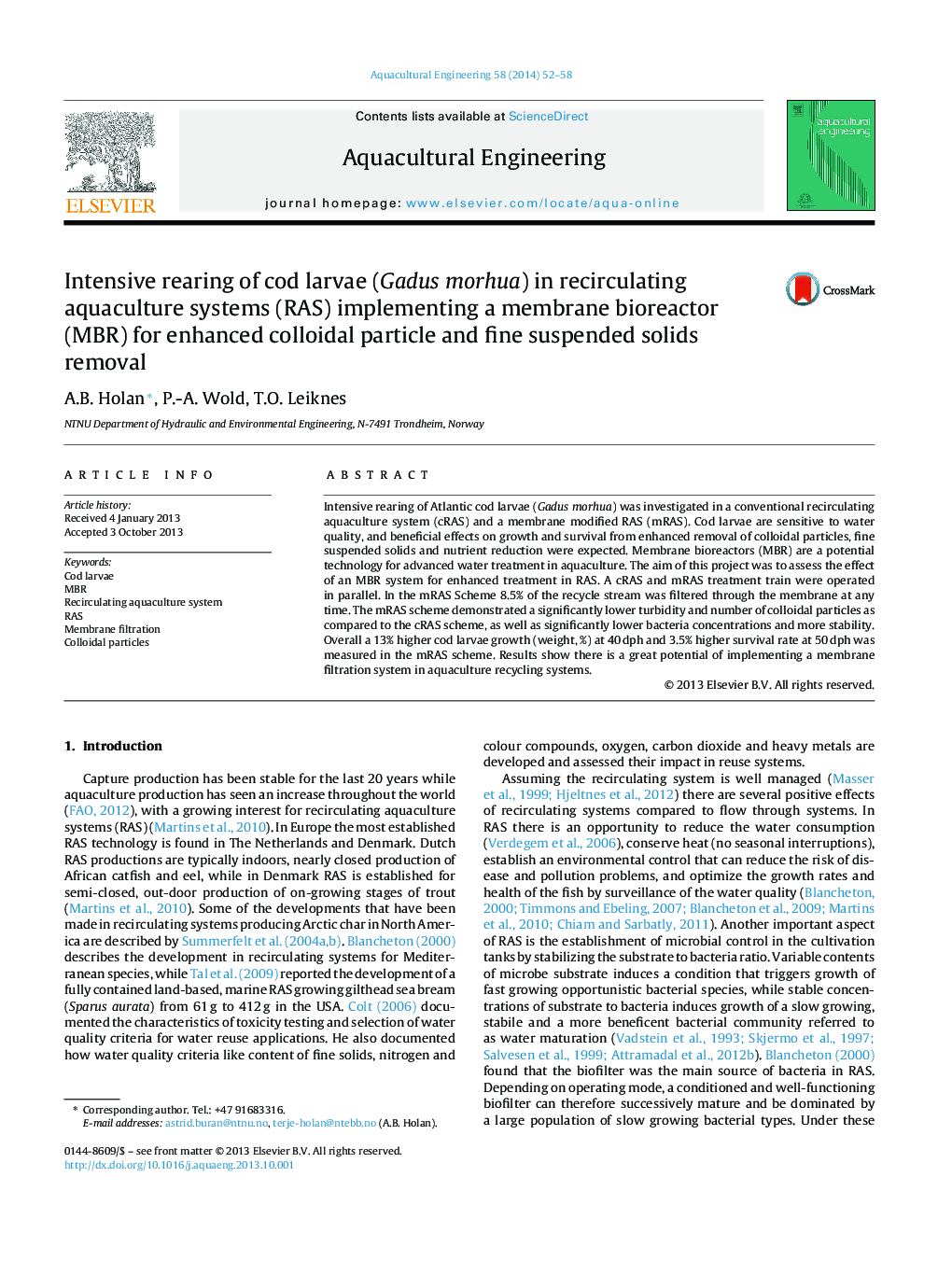| کد مقاله | کد نشریه | سال انتشار | مقاله انگلیسی | نسخه تمام متن |
|---|---|---|---|---|
| 4527206 | 1625712 | 2014 | 7 صفحه PDF | دانلود رایگان |

• We assessed the effect of a membrane bioreactor (MBR) system for enhanced colloidal and fine suspended solid removal in recirculating aquaculture system (RAS).
• A conventional RAS and a membrane modified RAS were operated in parallel.
• The membrane modified RAS clearly demonstrated a superior water quality and an overall 13% higher cod larvae growth (weight, %) and 3.5% higher survival rate.
• Results show there is a great potential of implementing a membrane filtration system in aquaculture recycling systems.
Intensive rearing of Atlantic cod larvae (Gadus morhua) was investigated in a conventional recirculating aquaculture system (cRAS) and a membrane modified RAS (mRAS). Cod larvae are sensitive to water quality, and beneficial effects on growth and survival from enhanced removal of colloidal particles, fine suspended solids and nutrient reduction were expected. Membrane bioreactors (MBR) are a potential technology for advanced water treatment in aquaculture. The aim of this project was to assess the effect of an MBR system for enhanced treatment in RAS. A cRAS and mRAS treatment train were operated in parallel. In the mRAS Scheme 8.5% of the recycle stream was filtered through the membrane at any time. The mRAS scheme demonstrated a significantly lower turbidity and number of colloidal particles as compared to the cRAS scheme, as well as significantly lower bacteria concentrations and more stability. Overall a 13% higher cod larvae growth (weight, %) at 40 dph and 3.5% higher survival rate at 50 dph was measured in the mRAS scheme. Results show there is a great potential of implementing a membrane filtration system in aquaculture recycling systems.
Journal: Aquacultural Engineering - Volume 58, January 2014, Pages 52–58